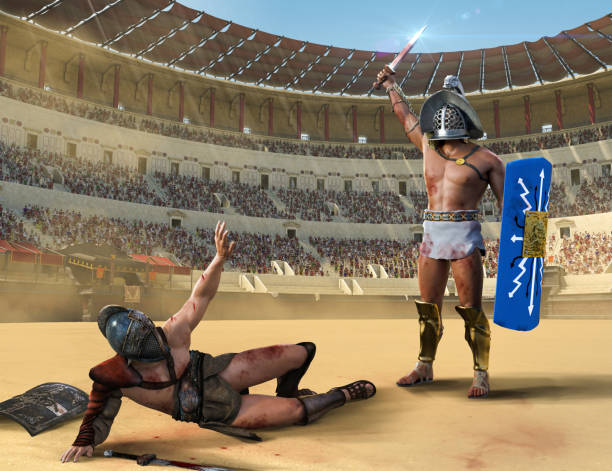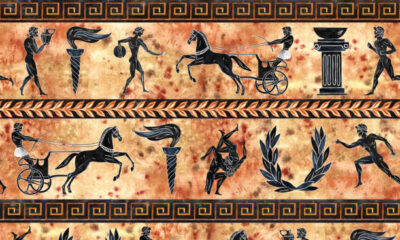Culture
How Gladiators In Ancient History Really Lived

In the grand coliseums and amphitheaters of Ancient Rome, the gladiator stood as a symbol of honor, courage, and spectacle. These skilled warriors captivated audiences with their daring feats and battles to the death, becoming legends of the arena. Let us delve into the fascinating world of the gladiator and explore their lives, training, and significance in the ancient world.
1. Origins and Development: The tradition of gladiatorial combat in Ancient Rome can be traced back to the Etruscans and Samnites, who held funeral games featuring armed combat as early as the 4th century BCE. These displays of martial prowess soon evolved into organized spectacles, with gladiators fighting in purpose-built arenas for the entertainment of the masses.
2. Types of Gladiators: The gladiators themselves came from diverse backgrounds and specialized in different fighting styles. From the heavily armed and armored Murmillo to the nimble and agile Retiarius, each type of gladiator brought their own unique skills and tactics to the arena. Some even fought wild animals or engaged in chariot races for the delight of the crowd.
3. Training and Lifestyle: Becoming a gladiator was no easy feat. Most were slaves, prisoners of war, or volunteers seeking fame and fortune in the arena. They underwent rigorous training in specialized schools called ludi, where they honed their combat skills, physical conditioning, and showmanship under the watchful eyes of experienced trainers. The life of a gladiator was harsh and demanding, with strict discipline, meager rations, and the constant specter of death looming over every fight.
4. Gladiatorial Games: Gladiatorial contests were a central feature of Roman entertainment, held to celebrate victories, honor the gods, and appease the masses. These spectacles were elaborate affairs, with colorful processions, ceremonial rituals, and fierce battles lasting until one combatant emerged victorious. The crowds roared with excitement as they watched gladiators clash in combat, their fate determined by the whims of the crowd or the emperor himself.
5. Legacy and Symbolism: The gladiator symbolized many ideals in Roman society, from bravery and honor to social status and power. Some gladiators achieved fame and fortune, earning the adulation of the masses and the favor of the elite. Others met a tragic end in the arena, their blood staining the sands and their names immortalized in the annals of history. Despite the brutality of their profession, gladiators were admired for their strength, skill, and willingness to face death with courage and dignity.
In conclusion, the gladiator epitomized the spirit of ancient Rome – a world where violence, honor, and spectacle converged in the arena. Their legacy lives on in art, literature, and popular culture, reminding us of a time when mortal combat was not just entertainment but a reflection of the values and beliefs of a civilization. The gladiator, with all their complexities and contradictions, continues to fascinate and captivate us, a testament to the enduring power of their story in the tapestry of history.
-

 Breaking News3 years ago
Breaking News3 years agoBREAKING: CBN Redesigns Naira Notes
-

 Breaking News2 years ago
Breaking News2 years agoBREAKING: Tinubu Considers Temporary Subsidy On Petrol
-

 Breaking News2 years ago
Breaking News2 years agoJUST IN: Gbajabiamila Dies In UK
-

 News3 years ago
News3 years agoDrama As Church Gives Certificate Of Virginity To Ladies After Testing Them (See Photos)
-

 Crime4 years ago
Crime4 years agoUproar As Student Teacher On Teaching Practice Impregnates 24 Girls, Headmistress, Four Female Teachers
-

 Breaking News10 months ago
Breaking News10 months agoJUST IN : Sacked Osun LG Chairman Killed Few Minutes After Returning To Office
-

 Breaking News2 years ago
Breaking News2 years agoBREAKING: Dangote Speaks As BUA Reduces Price Of Cement
-

 Crime3 years ago
Crime3 years agoJUST IN: Gunmen Storm Osogbo, Kill Man, Daughter Few Hours After His Wife Put To Bed (Photos)


